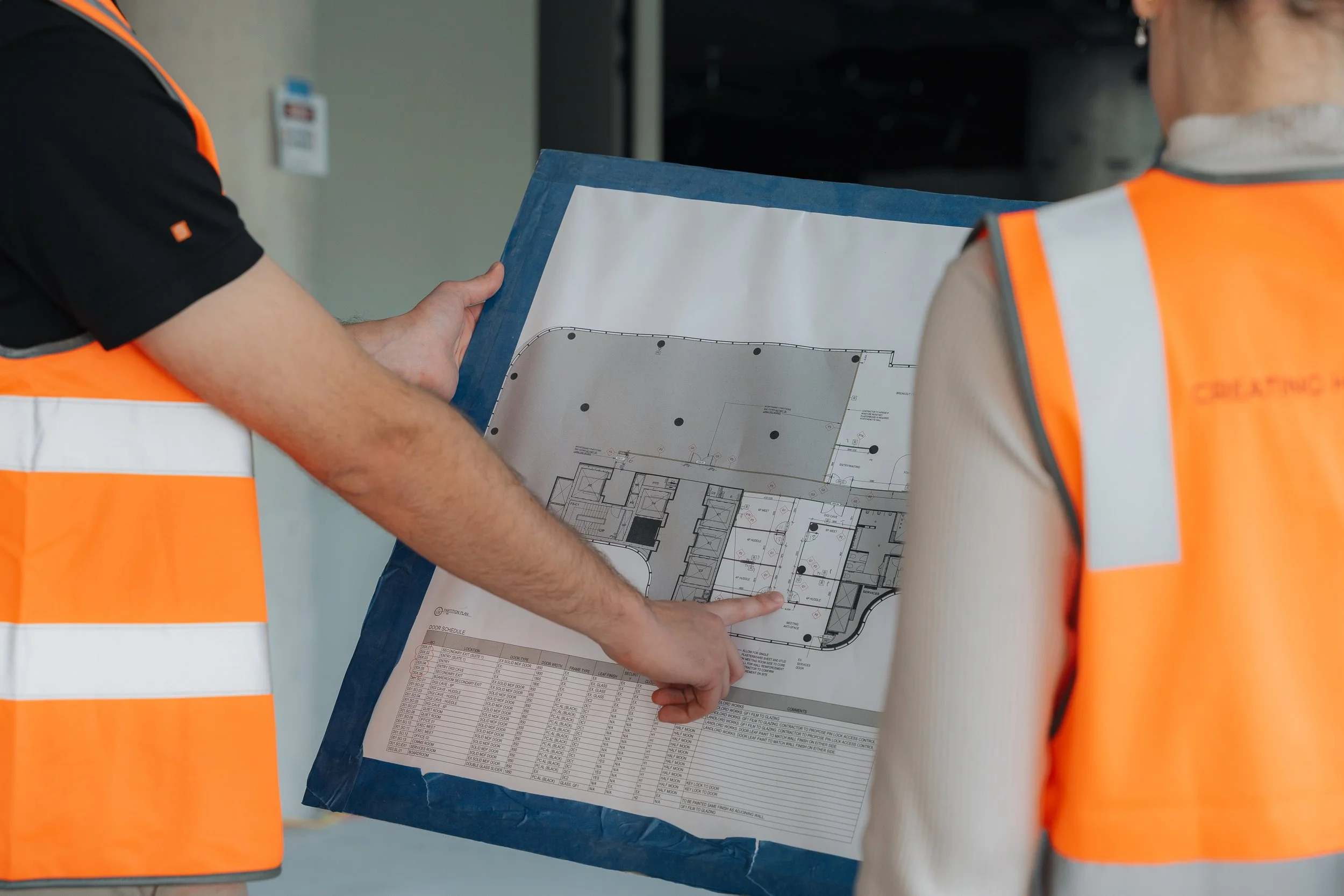Download the Workplace Adaptive Fitout Reuse Handbook
In an era of increased environmental conscious amongst market leaders, and a need to update the interiors of existing commercial stock to meet the flexibility requirements of a post pandemic workplace market, adaptive reuse has emerged as a leading strategy for office fitout projects. This approach involves transforming outdated industrial or commercial buildings into dynamic, functional office spaces, breathing new life into structures that have become increasingly unsuitable for tenants. In this whitepaper, we explore the insights, strategies, and benefits of adaptive fitout reuse, highlighting how businesses can achieve cost savings, reduce environmental impact, whilst creating unique, inspiring work environments that lease quickly.
Reducing office fitout costs and emissions through adaptive fitout reuse
Sheldon’s adaptive fitout reuse whitepaper presents a compelling case for “Adaptive Fitout Reuse” as a sustainable, cost-effective strategy for revitalising commercial office assets. Rather than defaulting to demolition and rebuild, adaptive reuse focuses on repurposing existing fitout elements such as walls, ceilings, joinery, and floor finishes, reducing waste, carbon emissions, and construction timelines. Key benefits include significant cost savings, faster delivery, and lower embodied carbon.
The paper outlines a structured process involving early design team engagement, finish auditing, and modularity planning to maximise reuse potential. Case studies at 55 Clarence St and 320 Pitt St demonstrate successful transformations with reused materials, reduced carbon intensity, and improved leasing appeal. Beyond the fitout, the paper emphasises enabling future reuse through modular and adaptable workspaces, promoting longer fitout lifespans. The whitepaper positions adaptive reuse as not only an environmentally responsible approach but also a competitive advantage in a shifting commercial property market.
Learn More about Creating Sustainable Spaces
Experts in the delivery of sustainable fitouts
Sheldon’s ESG strategy and purpose is to guide the company in integrating sustainability into its core operations, ensuring responsible and ethical management, and addressing the environmental and social impacts of its activities. It is centred on maximising impact and meeting stakeholder expectations in both the short and long term.





























